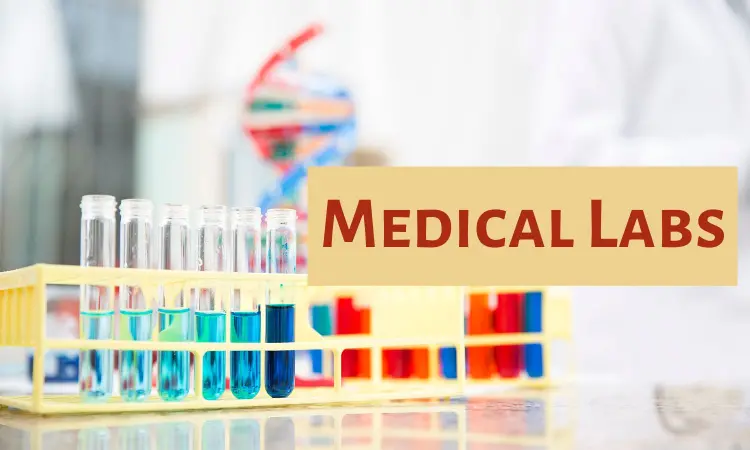- Home
- Medical news & Guidelines
- Anesthesiology
- Cardiology and CTVS
- Critical Care
- Dentistry
- Dermatology
- Diabetes and Endocrinology
- ENT
- Gastroenterology
- Medicine
- Nephrology
- Neurology
- Obstretics-Gynaecology
- Oncology
- Ophthalmology
- Orthopaedics
- Pediatrics-Neonatology
- Psychiatry
- Pulmonology
- Radiology
- Surgery
- Urology
- Laboratory Medicine
- Diet
- Nursing
- Paramedical
- Physiotherapy
- Health news
- Fact Check
- Bone Health Fact Check
- Brain Health Fact Check
- Cancer Related Fact Check
- Child Care Fact Check
- Dental and oral health fact check
- Diabetes and metabolic health fact check
- Diet and Nutrition Fact Check
- Eye and ENT Care Fact Check
- Fitness fact check
- Gut health fact check
- Heart health fact check
- Kidney health fact check
- Medical education fact check
- Men's health fact check
- Respiratory fact check
- Skin and hair care fact check
- Vaccine and Immunization fact check
- Women's health fact check
- AYUSH
- State News
- Andaman and Nicobar Islands
- Andhra Pradesh
- Arunachal Pradesh
- Assam
- Bihar
- Chandigarh
- Chattisgarh
- Dadra and Nagar Haveli
- Daman and Diu
- Delhi
- Goa
- Gujarat
- Haryana
- Himachal Pradesh
- Jammu & Kashmir
- Jharkhand
- Karnataka
- Kerala
- Ladakh
- Lakshadweep
- Madhya Pradesh
- Maharashtra
- Manipur
- Meghalaya
- Mizoram
- Nagaland
- Odisha
- Puducherry
- Punjab
- Rajasthan
- Sikkim
- Tamil Nadu
- Telangana
- Tripura
- Uttar Pradesh
- Uttrakhand
- West Bengal
- Medical Education
- Industry
Delhi Govt plans 11 Integrated Public Health Laboratories

New Delhi: To strengthen disease surveillance and improve diagnostic infrastructure, the Delhi Health Department has identified 11 district hospitals to host Integrated Public Health Laboratories (IPHL). These labs will serve as a vital link between primary health centres, sub-centres, and more advanced diagnostic support systems across the city.
The initiative, designed to bolster both routine diagnostics and outbreak response capabilities, is expected to begin operations within three months of receiving final approval from senior authorities, according to a senior health department official.
Each IPHL will deliver a wide range of diagnostic services, including pathological, biochemical, and haematological tests.
Also Read: Strengthening Public Health Infrastructure to Prevent Future Pandemics: Health Minister
The procurement of equipment will be aligned with specific requirements outlined in the 2021 Integrated Public Health Laboratories (IPHL) guidelines. Essential devices include an automated coagulometer, an automated ESR analyzer, a centrifuge, a binocular microscope, a fluorescent microscope, a real-time PCR machine, and an automated blood culture system.
A health official stated that, since district hospitals already possess various testing devices, the existing infrastructure will be utilized before acquiring any new equipment. According to the news reports, the proposed district hospitals where the labs will be set up include Lal Bahadur Shastri Hospital in east, Maharishi Valmiki Hospital in north, Guru Gobind Singh Govt Hospital in west, Pt Madan Mohan Malaviya Hospital in south, Ambedkar Nagar Hospital in south-east, Indira Gandhi Hospital in south-west, and Rajiv Gandhi Super Specialty Hospital in Shahdara.
As per the Indian Public Health Standards (IPHS), each lab will operate 24/7 and must include three specialists (pathologist, microbiologist, and biochemist), 11 laboratory technicians across three shifts, plus data entry operators, cleaning staff, housekeeping, and security personnel.
Also Read: Himachal allocates Rs 193.75 crore for 2 New Critical Care Blocks
Officials emphasized that integrating lab services will maximize resource efficiency, avoid duplication, and enhance patient care. With multi-disease testing capabilities, IPHLs will improve the city’s readiness for emerging health threats and enable rapid, accurate reporting to public health surveillance systems.
Beyond diagnostics, the IPHLs will function as critical components of Delhi’s public health response system, analyzing not only clinical specimens but also environmental samples like water, food, and air, especially during health emergencies and disease outbreaks.
IPHLs also provide diagnostic services for both communicable and non-communicable diseases, including tests under national health programmes for tuberculosis (TB), HIV, malaria, viral hepatitis, and other conditions that require Biosafety Level 2 laboratory standards.
Samples collected at IPHLs will typically fall into two main categories: blood and compartmental specimens (e.g., nasal swabs, sputum, saliva, urine). Transportation protocols will vary depending on the sample type and specific test requirements.


